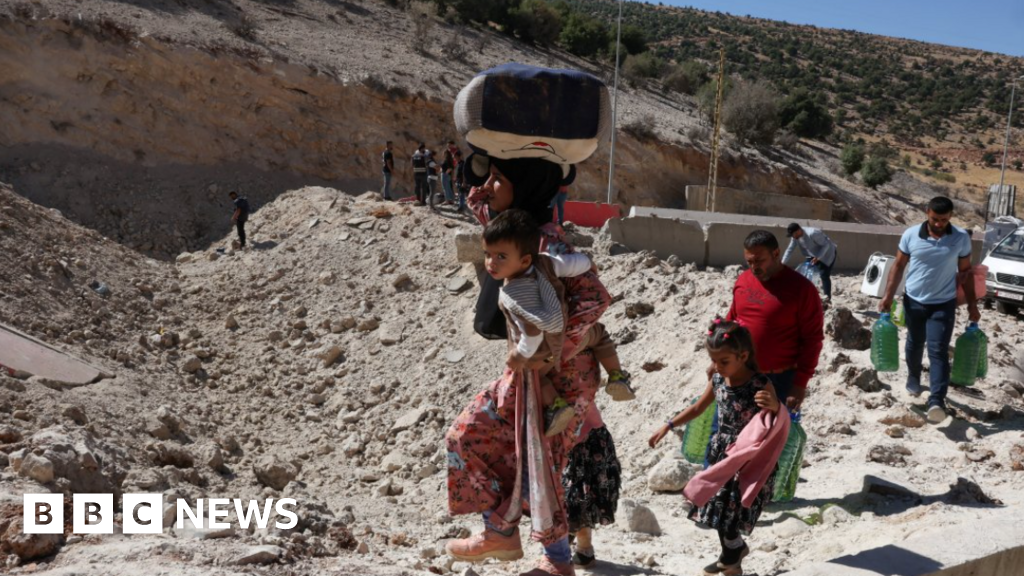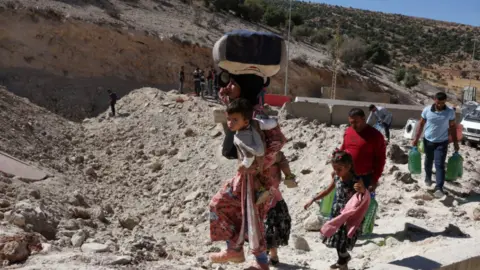 Reuters
ReutersAn Israeli air strike has hit near the main border crossing point for people fleeing the escalating bombing and ground campaign in Lebanon for neighbouring Syria.
Israel’s military said it had hit Hezbollah targets near the Masnaa crossing, and earlier claimed the group was using it to smuggle weapons into Lebanon.
The strike on Friday destroyed a section of the road and effectively cut off vehicle access.
People are still able to make the journey on foot, with pictures showing families clambering over rubble and scrambling through the four-metre crater in the road to get out of the country.
More than 300,000 people have left Lebanon for Syria in the past 10 days to flee the bombing, according to Lebanese government figures.
The strike on Friday hit the road 700m from the checkpoint on the Lebanese side, and around 5km (3.1 miles) from the border itself.
Aid workers said the destruction of the road near Masnaa crossing hinders both the movement of people and also food and humanitarian supplies.
“It will mean that goods which would normally come overland through that crossing – the cheapest, most effective way to bring commodities into that country – will also not be able to be received here,” Matthew Hollingworth, the director of the UN’s World Food programme told the BBC.
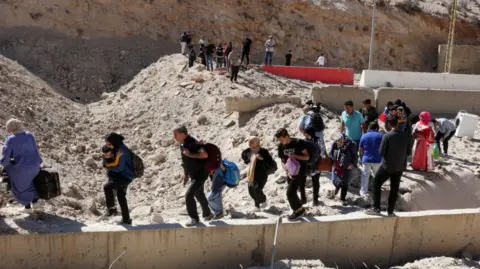 Reuters
Reuters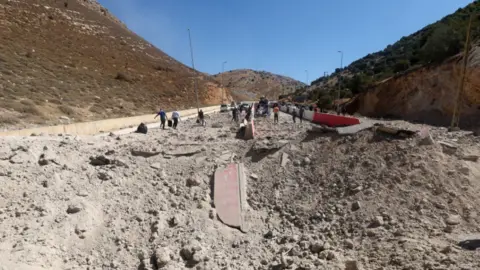 Reuters
ReutersMr Hollingworth stressed that it was essential for other routes leading out of Lebanon – particularly those in the north – to remain unhindered.
“We really would press that they remain open because they will be critical for people to leave, and also for humanitarian commodities to come in,” he told BBC Radio 4’s Today programme.
The Masnaa crossing in Lebanon’s east had been the main path for people to move into Syria, and then onto Jordan and the Gulf States, while in Lebanon the road had also connected west to the capital Beirut on the coast, which has been heavily bombed in recent days.
The Israel Defense Forces (IDF) on Friday said it had targeted a site at the border crossing where “weapons were transferred to Hezbollah”, and also a 3.5km underground tunnel between Lebanon and Syria, the location of which was not specified.
In a statement issued before the strike, the IDF said the crossing had become the “primary border crossing for Hezbollah’s weapons transfers” and accused the group of concealing “smuggling activity among civilian trucks and vehicles”. It called on Lebanon to thoroughly inspect trucks.
Many people moving east are Syrian nationals living in Lebanon, who have headed back to their own country to escape Israel’s bombardments.
The BBC spoke to one woman in Beirut, who had sent her son back to Syria this week because the capital was too dangerous.
“I found a lot of people from our neighbourhood heading for Syria, so I sent him with them,” she said.
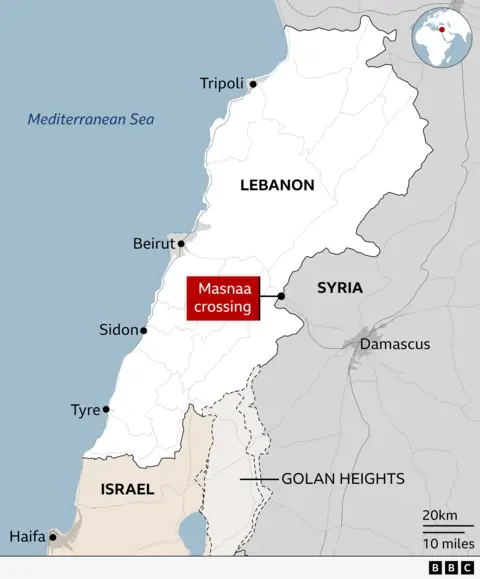
On Friday, strikes also hit near the country’s only commercial airport, the Beirut-Rafic Hariri International Airport. The airport borders the suburb of Dahieh, Hezbollah’s stronghold in the city, and a continued target of Israeli air strikes.
Major strikes there one week ago killed the long-time leader of Hezbollah, Hassan Nasrallah. Reports indicated that the new strikes on Friday morning were aimed at the group’s new leadership, including a potential new overall leader, Hashem Safieddine.
Lebanon’s public health ministry said 37 people had been killed in ground and air attacks in the last 24 hours while 151 others had been wounded.
More than 2,000 people have been killed in Lebanon by Israeli air strikes since fighting escalated just over two weeks ago, the Lebanese health ministry says.
Israeli forces on Friday also told residents of another two dozen towns and villages in the South, including the regional capital city of Nabatieh, to leave immediately for their safety.
The new order applies to communities further inland, north of the Litani river, about 30km from the border with Israel.
The river is a crucial marker as Israel has previously demanded that Hezbollah withdraw to the Litani, as per the UN Security Council resolution that ended their last war in 2006. But there are concerns in Lebanon that Israel will seek to occupy part of the country’s south again.

